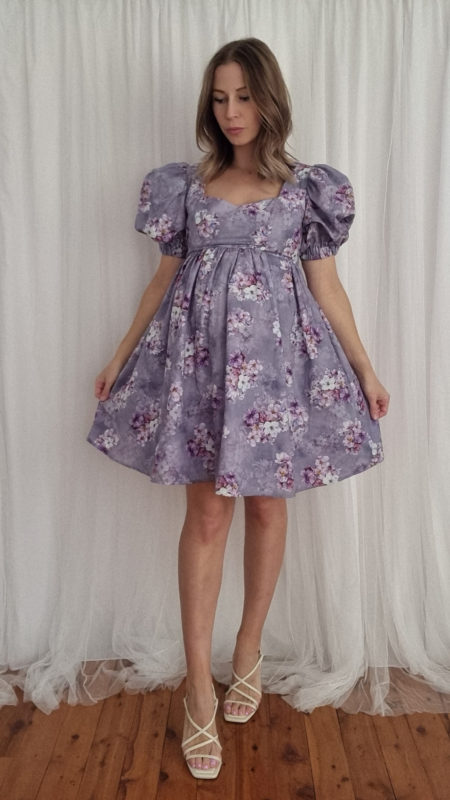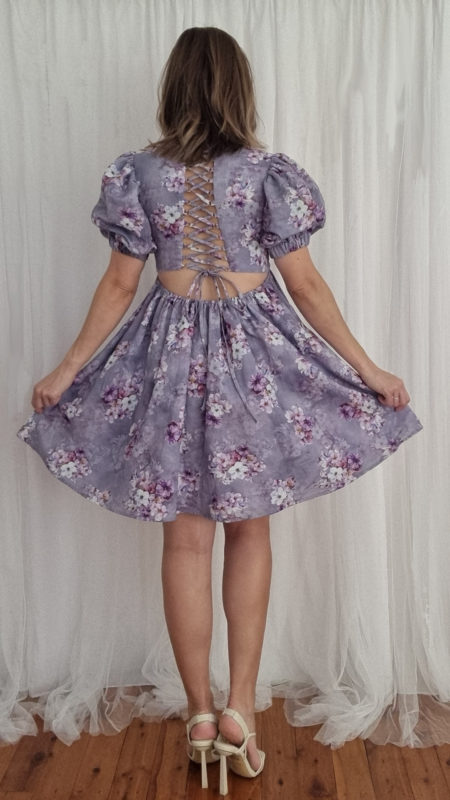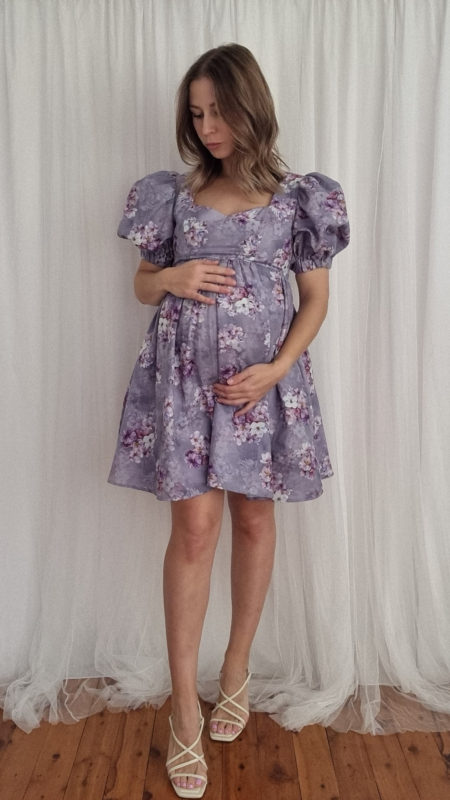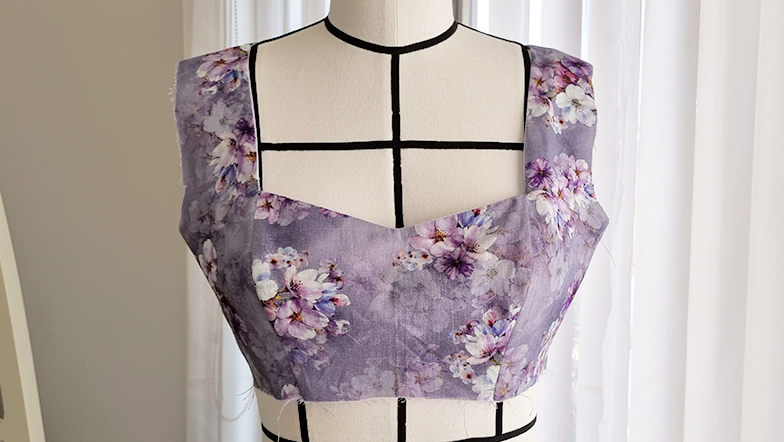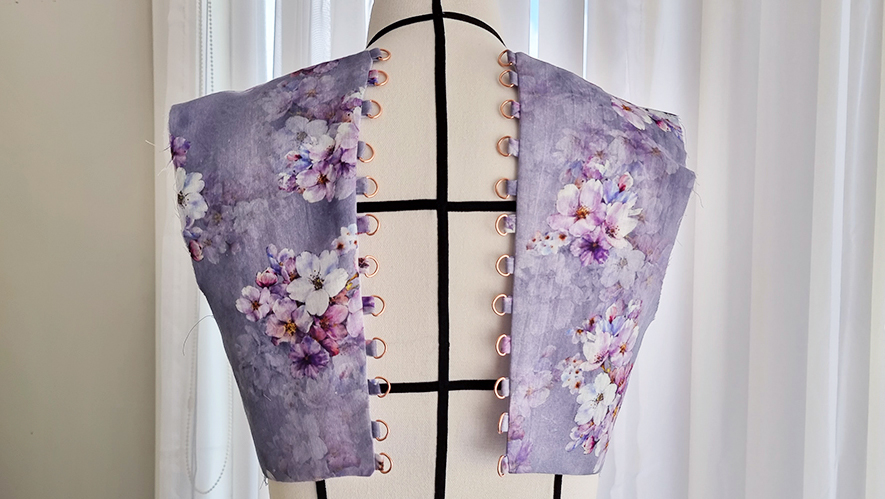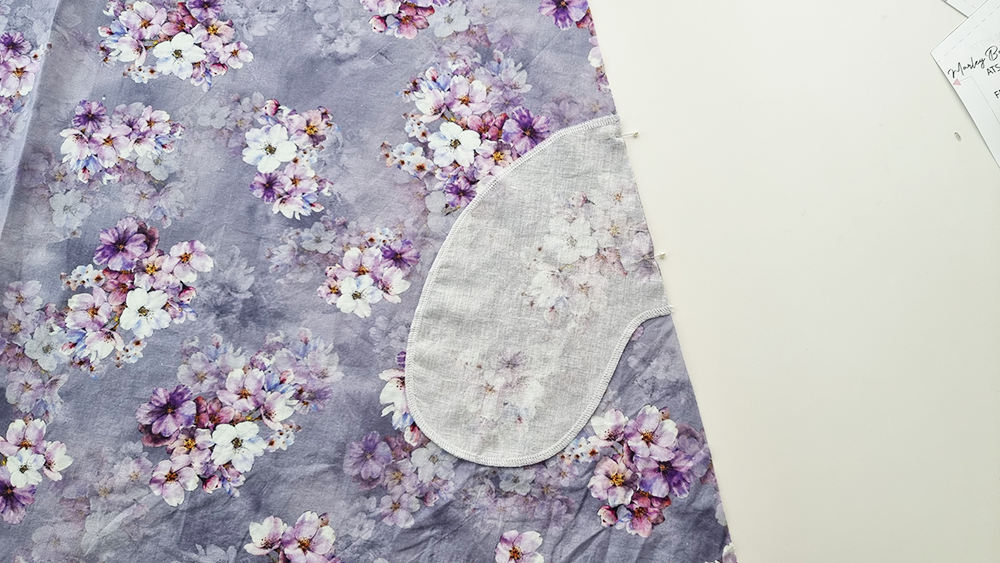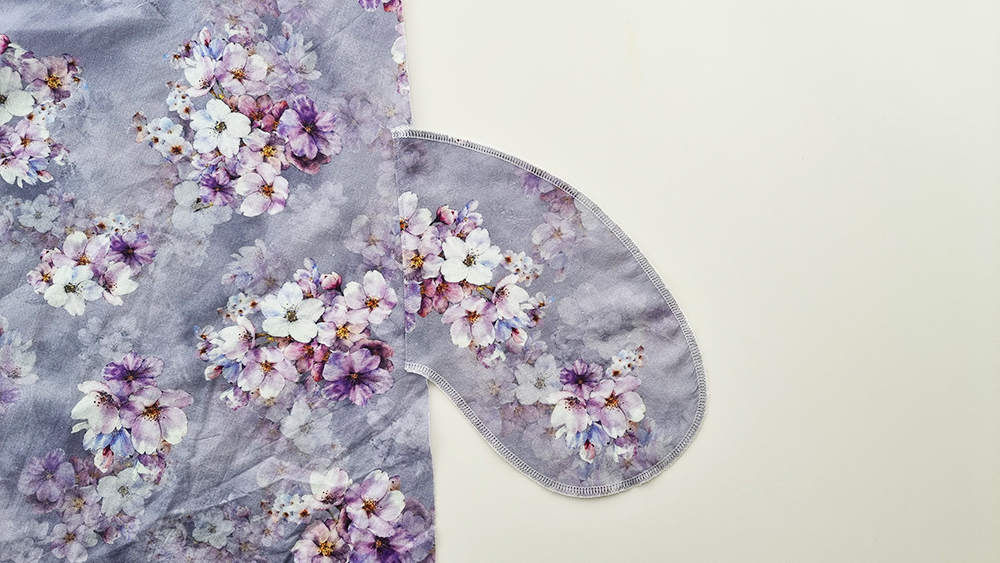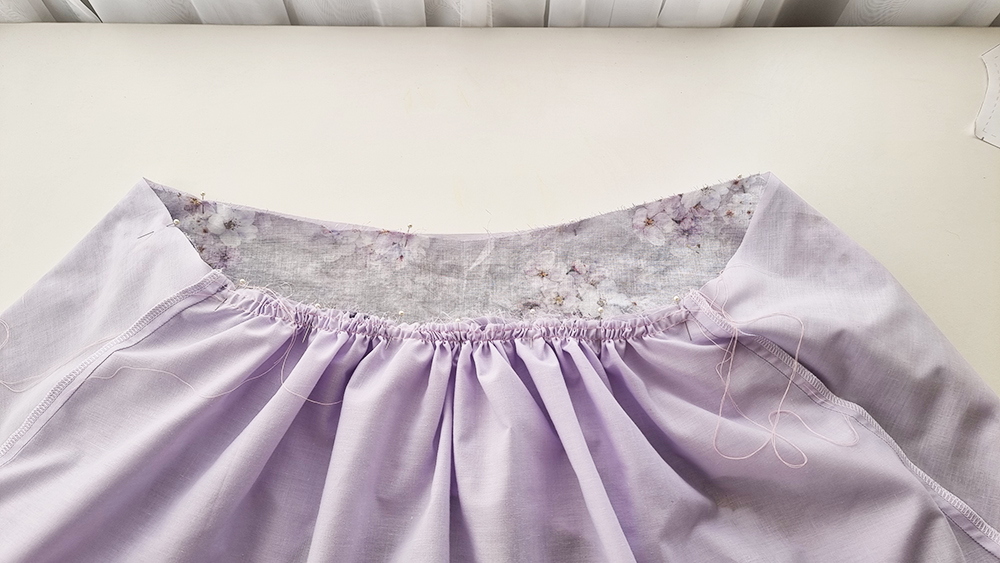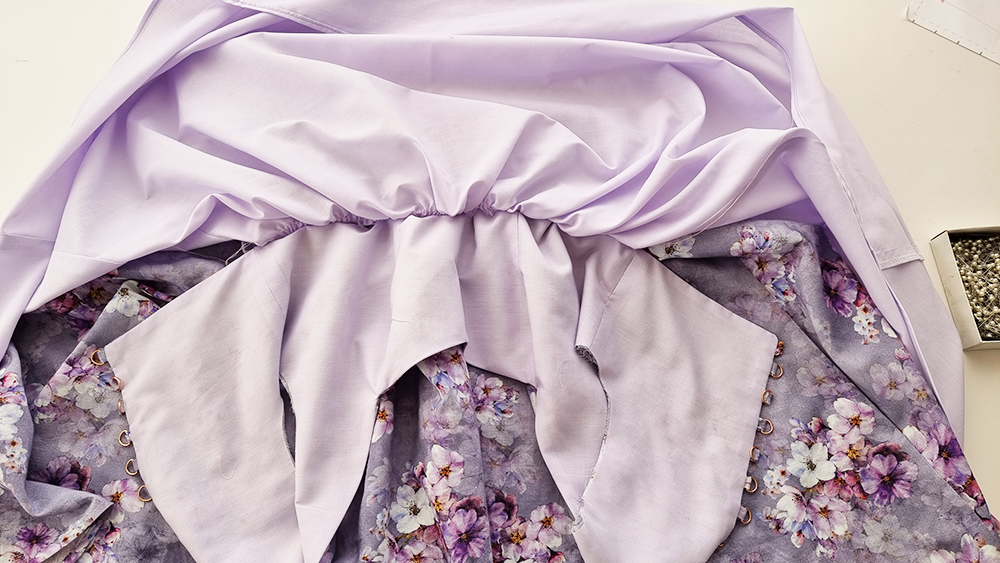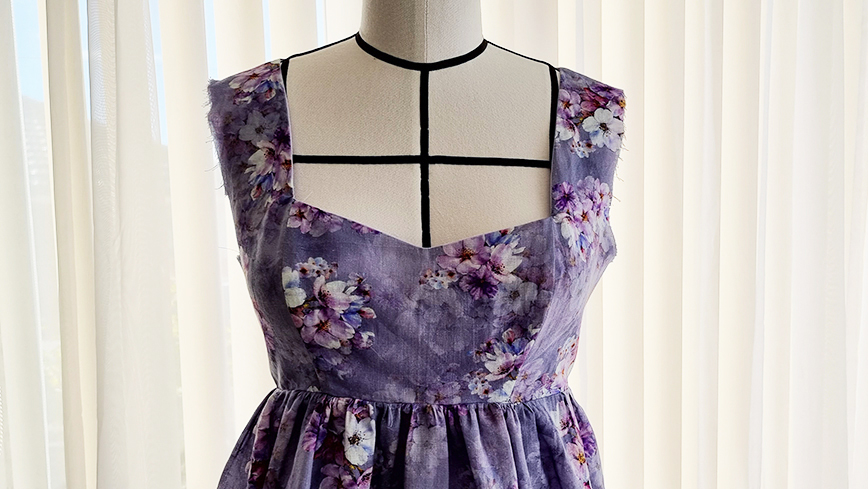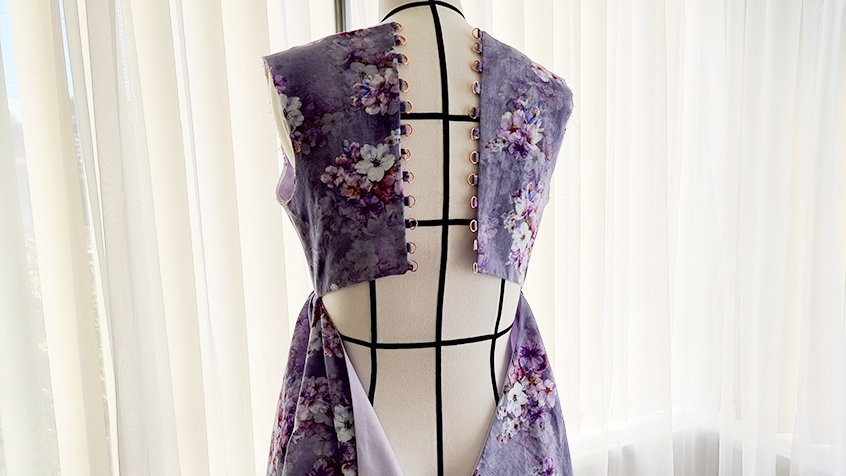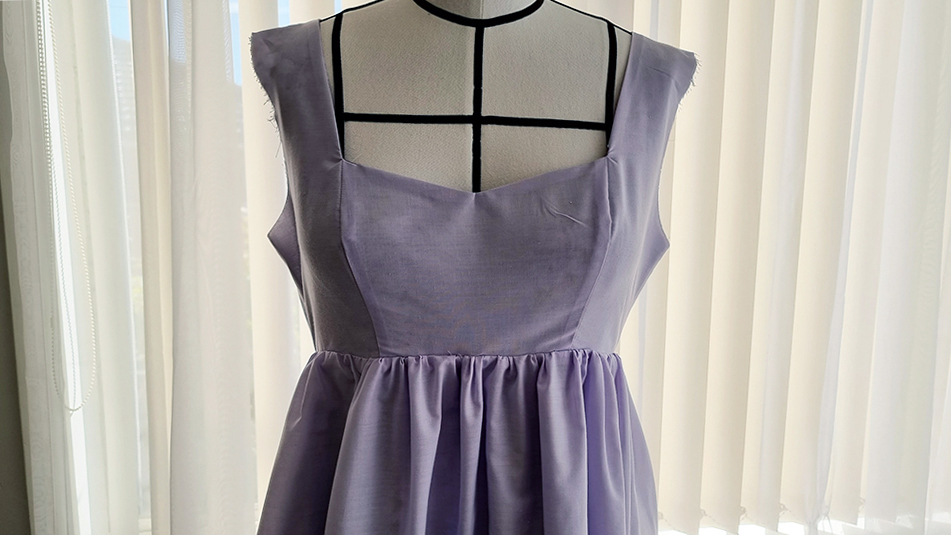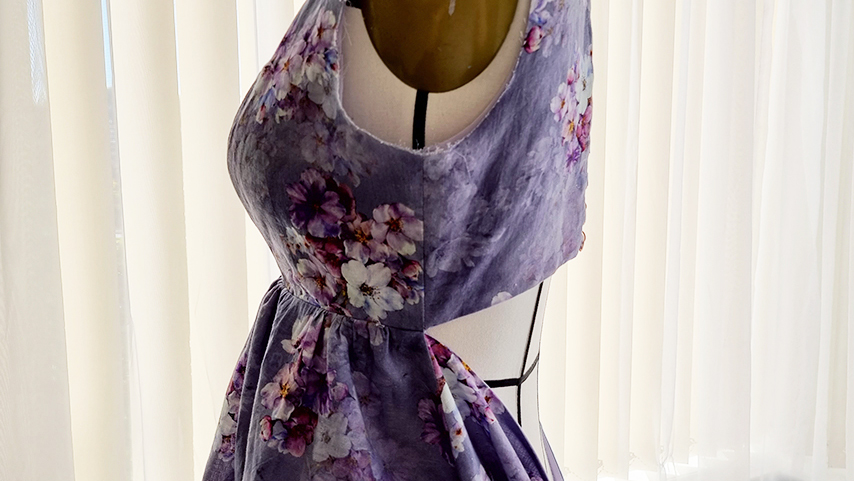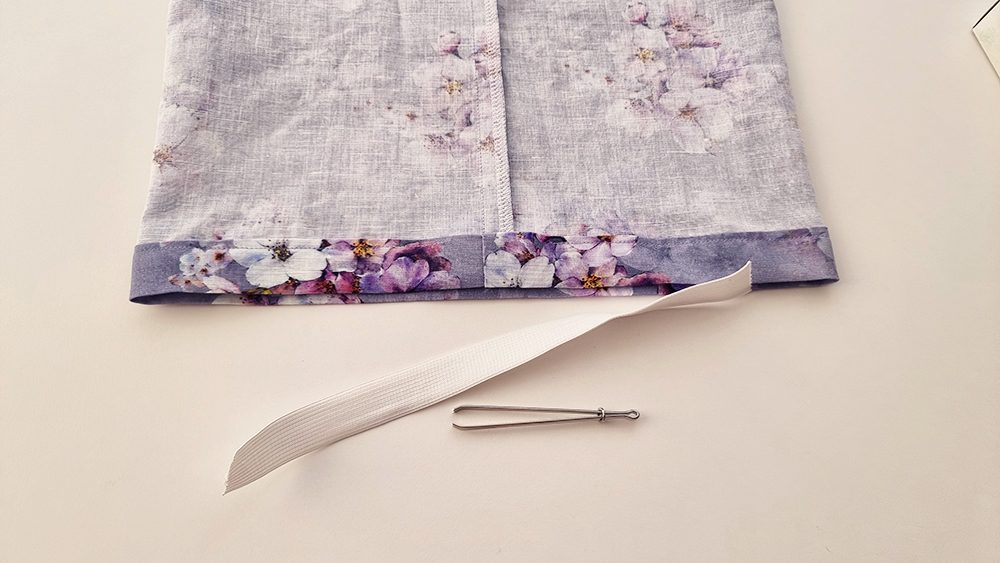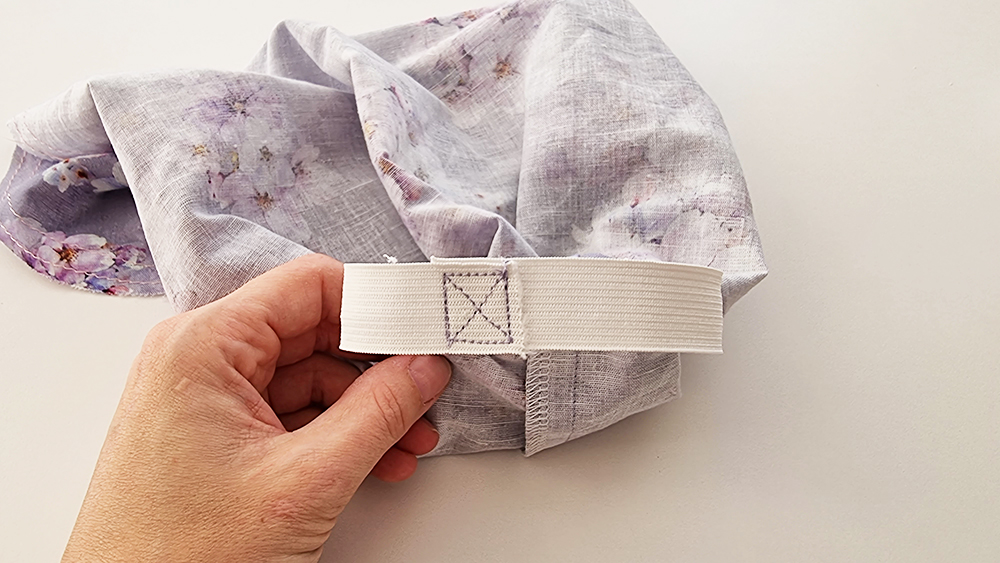Dresses, Sewing Tutorials
Sewing Tutorial: Marley Babydoll Dress
The Marley Babydoll Dress has been developed off the best-selling Amelia Puff Sleeve Dress. The Marley Babydoll Dress features a higher waist seam that sits under the bust. Lace-up detailing has been added to the back bodice and the back of the skirt waist is elasticated to allow the styles to be fully adjustable. These updates make it the perfect maternity dress for that growing bump. This dress has been designed as both a normal dress and a maternity dress with 2 cut options for the front of the skirt. The bodice and skirt are both fully lined, the sleeves are unlined. The sleeve is a set in gathered puffy sleeve that is slightly more exaggerated than the Amelia Dress. The skirt is a semi-circular gathered skirt with a 5mm rolled hem.
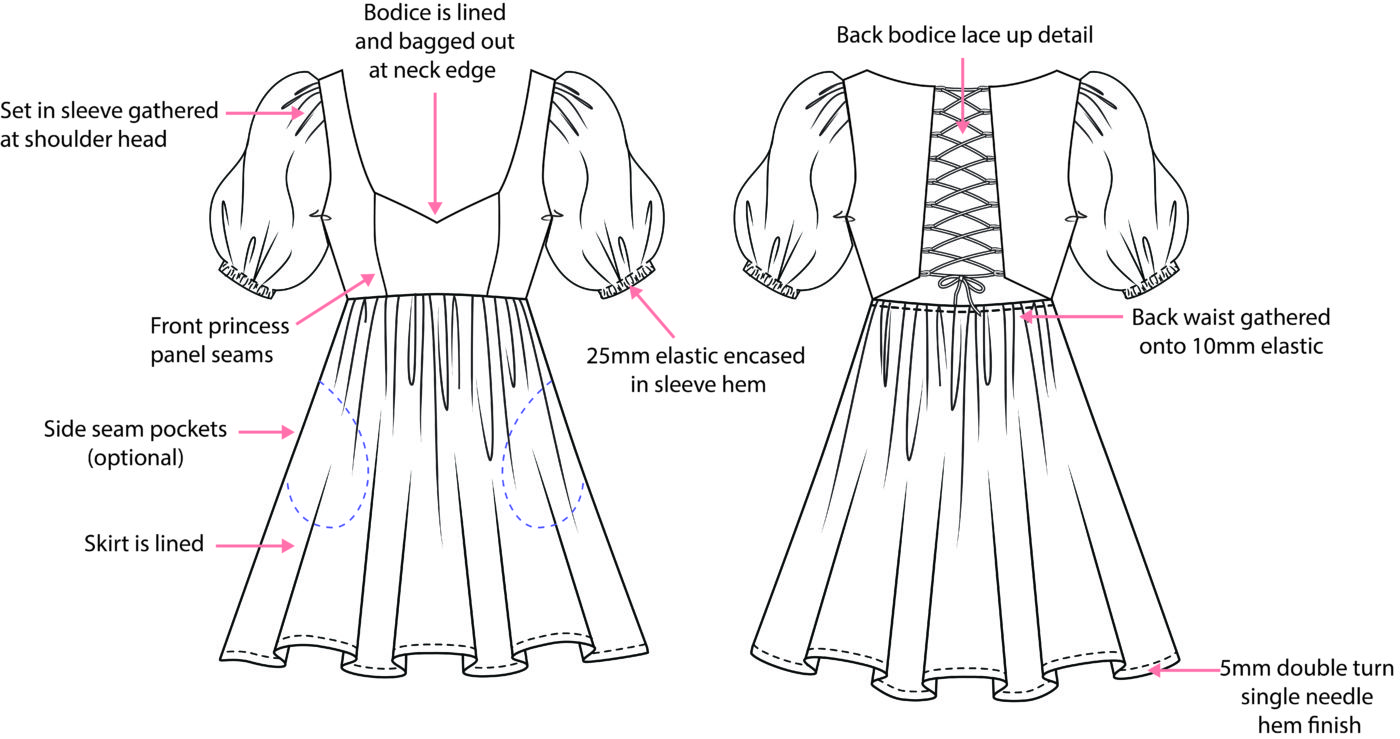
SEWING ABILITY
Advanced
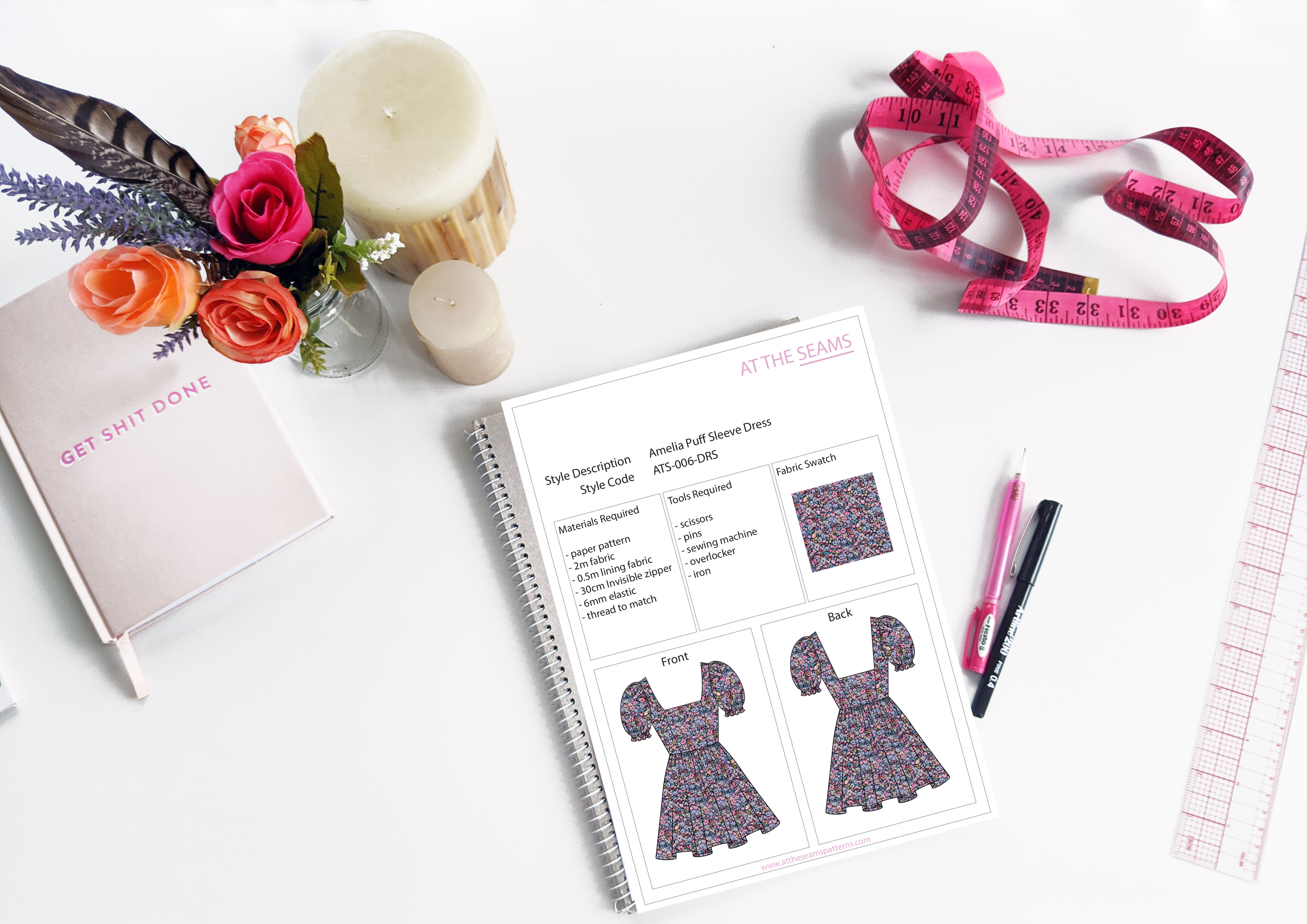
To begin you will need the following things
Materials
- Marley Babydoll Dress (size XS-XL) paper pattern
- Marley Babydoll Dress (size XL-5XL) paper pattern
- Lining fabric
- 10mm elastic
- 25mm elastic
- cotton thread (enough to also thread your overlocker)
Tools
- scissors
- pins
- sewing machine with a regular foot
- overlocker
- iron & ironing board
- safety pin or bodkin
- rouleau turner (optional)
Tips
- Ensure your fabric is washed, dried, and pressed before you start cutting. There is nothing worse than washing your beautiful garment and it shrinks, or even more annoying the lining shrinks and the main doesn’t so it’s all pulled out and shape and is unwearable.
If you prefer video instructions – please head over to youtube.
Step 1
Cut all main and lining pieces accurately on the correct grain, ensuring all notches are clipped. Be sure to clip the CF of the bodice hem and the CF and CB of the skirt waist. Please note all seam allowance is marked on the pattern and is also listed on page 2 of the booklet provided with the pattern.
Beginner tip* If you can afford to purchase a rotary cutter and cutting mat, I find this more accurate and time-efficient.
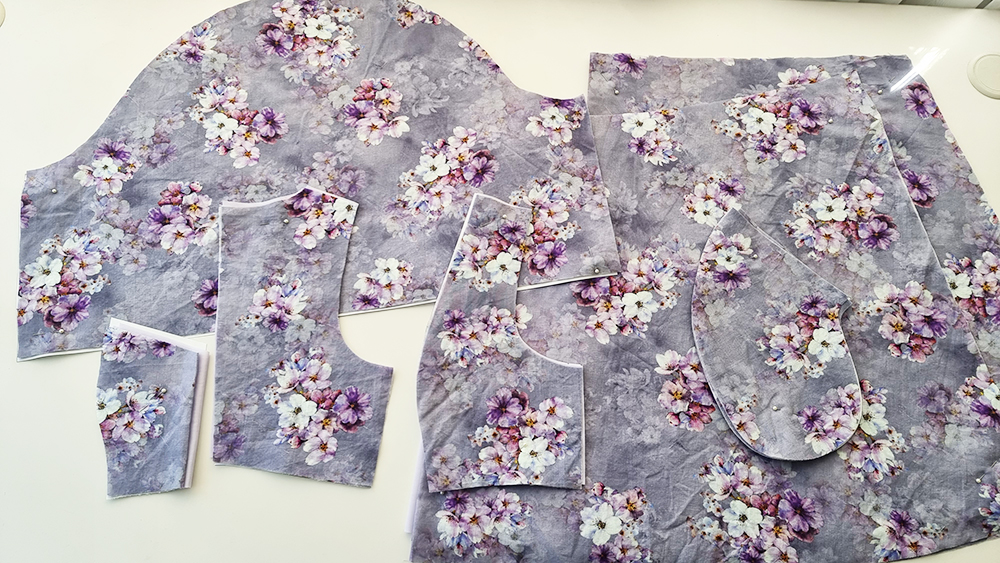
BODICE
Step 2
Take the main fabric pieces of the front bodice and pin the front panel seams right side together and stitch closed using a 1cm seam allowance. Press seam allowance inwards.
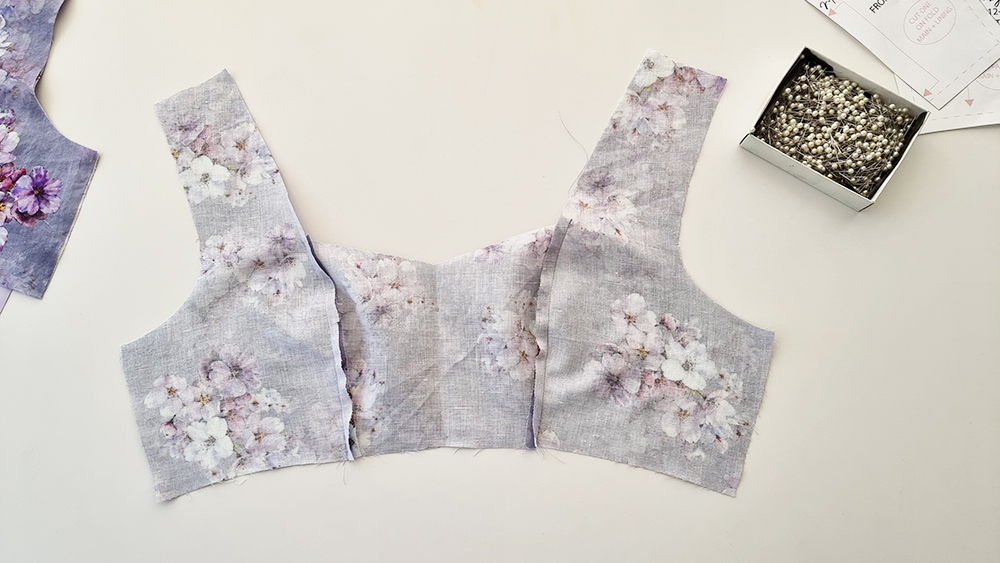
Step 3
Then pin side seams right sides together and stitch closed with a 1.5cm seam allowance leaving a 1cm gap at the bottom edge. Press the seam allowance open.
Beginner tip* to ensure this is accurate I recommend marking this on your fabric before sewing.
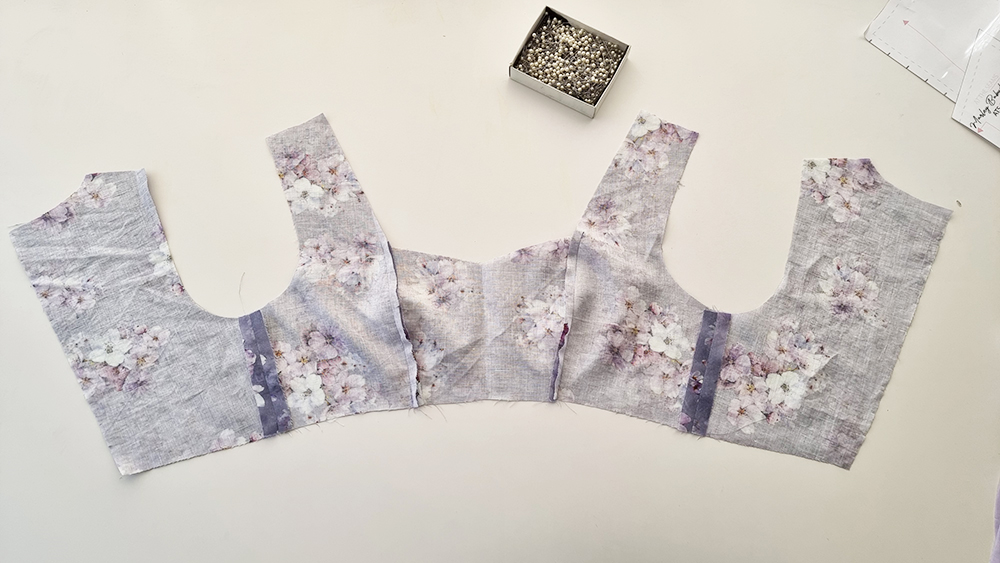
Step 4
Pin shoulder seams right sides together and stitch closed with a 1cm seam allowance. Press the seam allowance open.
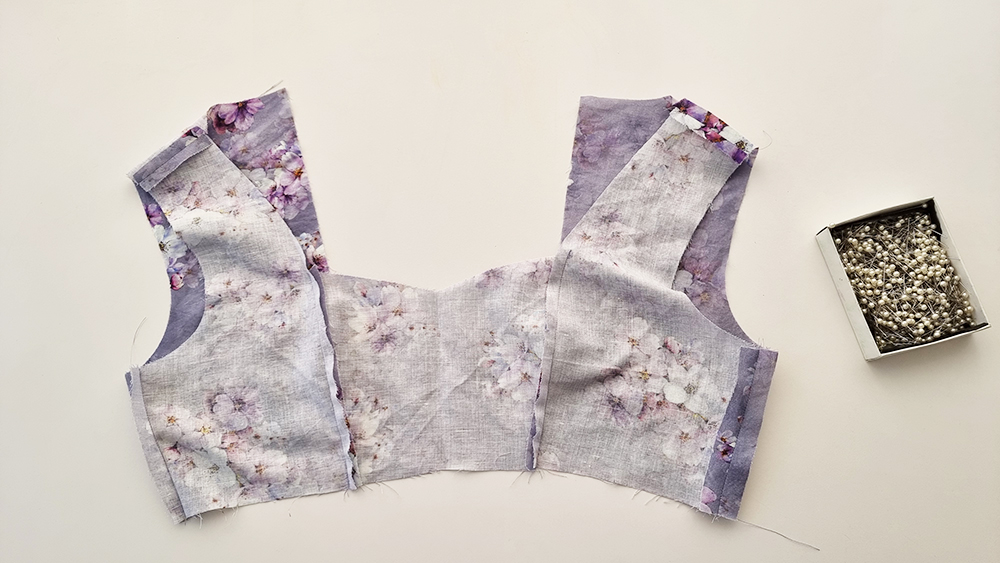
Step 5
Repeat the above steps on the lining fabric pieces.
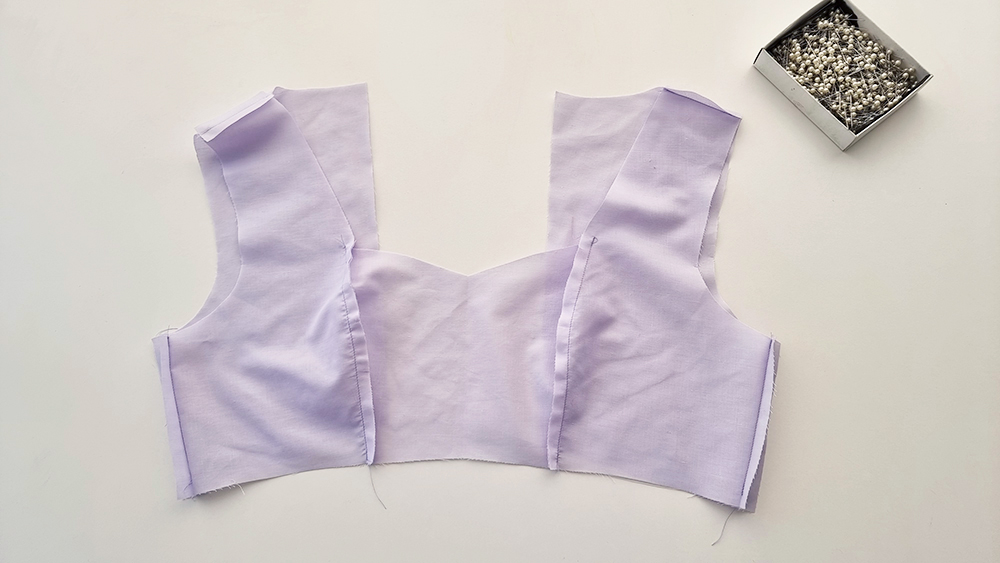
Step 6
Next, you will need to prepare the loops for the CB lace-up detail. This can be self-fabric rouleau loops, ribbon or cord. You will need 24 loops. Each loop will need to be 4cm long.
Step 7
Once you have your loops made and cut, attach them to the bodice using the notches provided on the pattern.
Stitch/Baste in place to hold.
Beginner tip* If you are having trouble keeping the loops in place while sewing, try adding tissue paper over the top. This can be easily torn away afterward. Alternatively, you can hand-sew the loops in place.
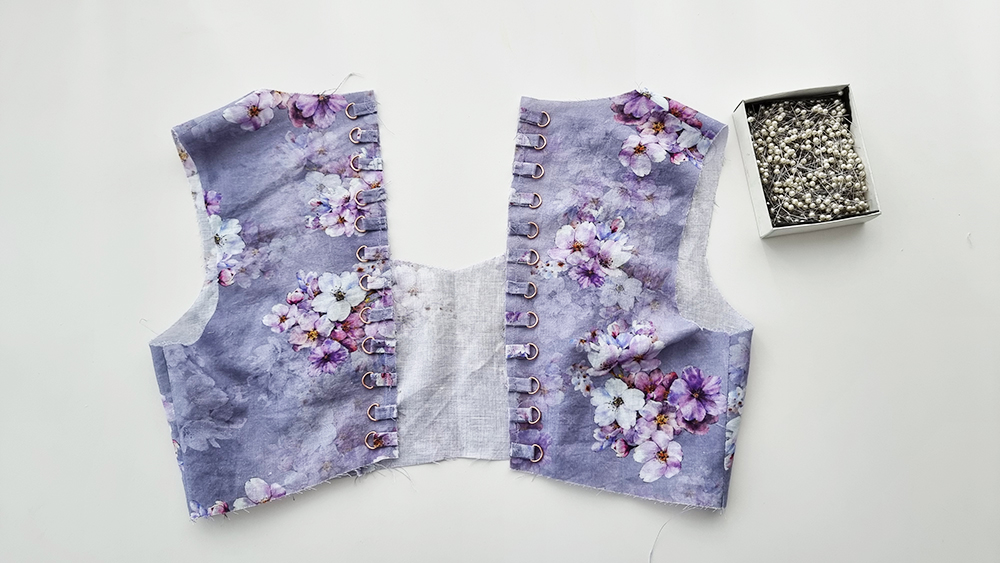
Step 8
Place the bodice main and lining right sides together and pin along the back hem, center back bodice and front and back neck edges.
Ensure that your shoulder seams and front bodice seams match together.
Step 9
Stitch closed with a 1cm seam allowance
Step 10
Then clip the corners and curves and turn through. Use a sharp object to get the corners nice and square. Then press flat.
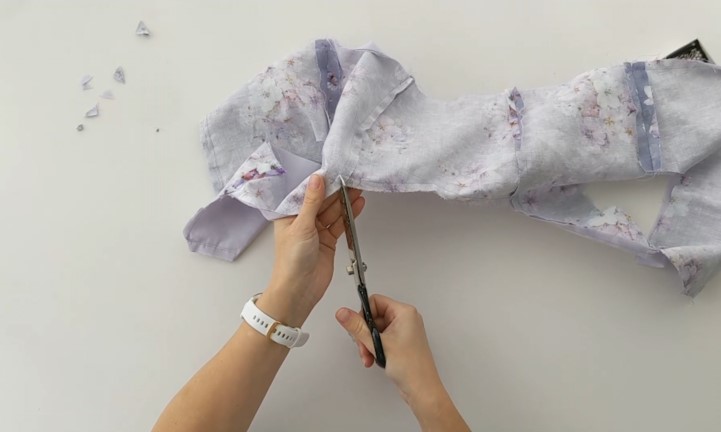
The front hem and armholes will be left open.
SKIRT
(if not using pockets skip to step 15b)
Step 11
Overlock the edges of the pocket bags separately from the wrong side of the fabric.
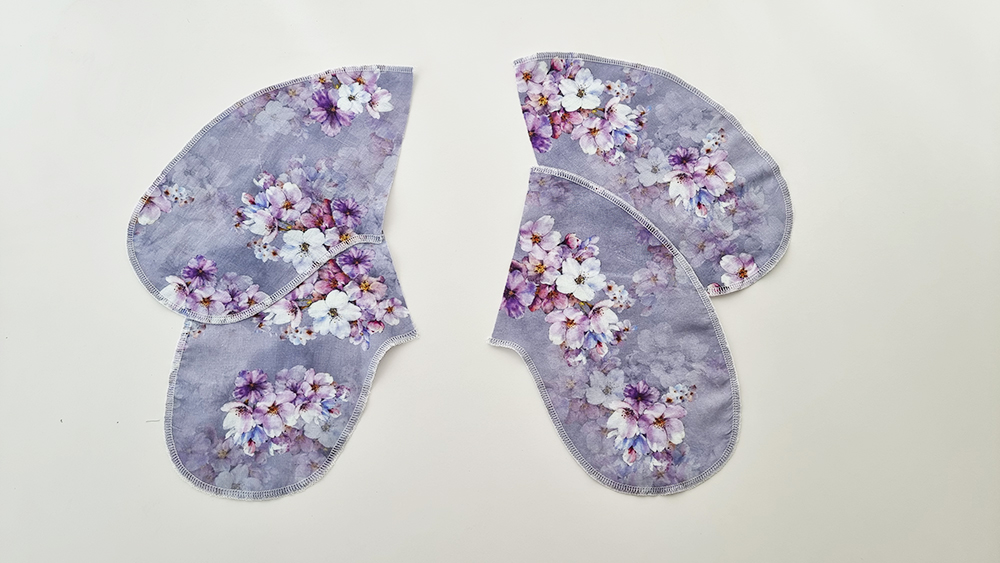
Step 12
Picking up the main fabric front and back skirt pieces.
Pin the pockets to the side seams of the front and back skirt right sides together using the notches on the pattern as a placement guide. Stitch closed with a 1.5cm seam allowance. Press the seam allowance towards the pocket and understitch.
Step 13
Overlock the side seams of the front and back skirt separately.
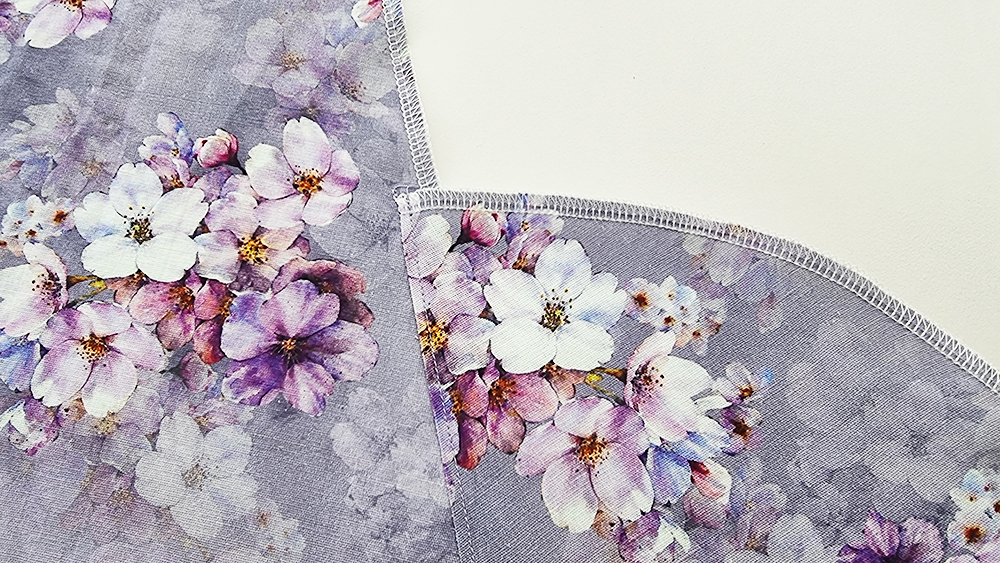
Step 14
Then pin the front and back skirt side seams right sides together. Stitch closed from top to bottom stopping at the pocket opening to sew around the edge of the pocket bag then continue down the rest of the side seam. Seam allowance on the side seam is 1.5cm, seam allowance on the pocket is 1cm. Press the seam allowance towards the front.
Step 14b – Without Pockets
Pin the front and back skirt side seams right sides together. Stitch closed from top to bottom with a 1.5cm seam allowance then overlocked closed and press the seam allowance towards the back.
Step 15
Moving onto the skirt lining. Pin the front and back skirt side seams right sides together. Stitch closed with a 1.5cm seam allowance. Overlock closed then press the seam allowance towards the back.
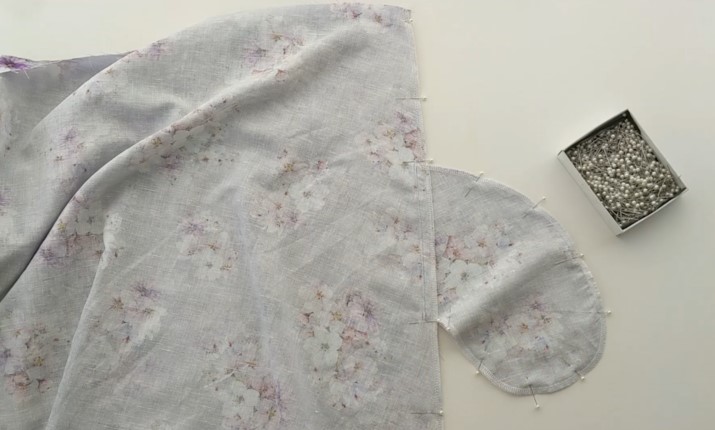
Step 16
Hem both the main skirt and the skirt lining with a 5mm double-turn single needle stitch.
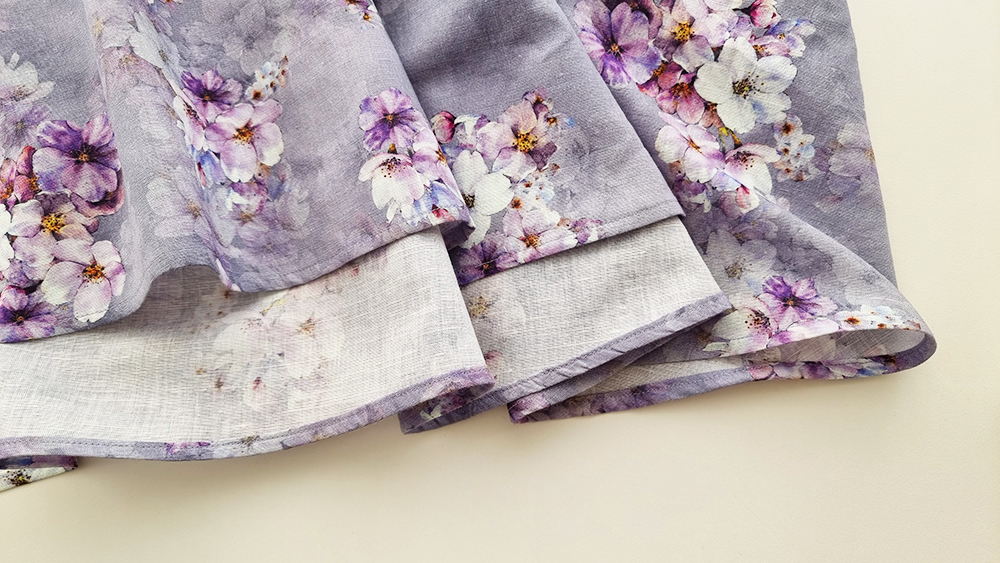
Step 17
Stitch 2 rows of gathering thread across the top edge of the front of the skirt on both the main and the lining.
If you need extra help with gathering, please see the more in-depth gathering tutorial here.
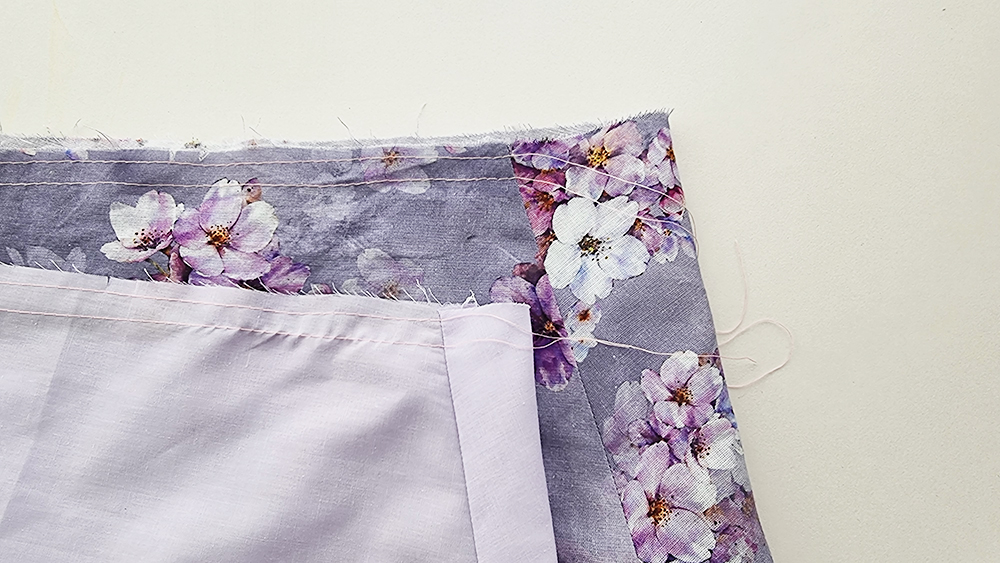
Step 18
Place the skirt main and lining right sides together. Place the bodice in between ensuring the right side of the bodice is facing the main fabric of the skirt.
Step 19
Gather the top of the front skirt main and lining to fit the bodice. Take care to use the notches provided to ensure the gathers are distributed evenly in the right areas.
Step 20
Then pin the top edge of the skirt closed along the front and back waist edges. Stitch closed with a 1cm seam allowance, then overlock the seam closed.
NOTE: only the front of the bodice will be inserted into the waist seam.
Step 21
Gently remove the gathering threads from the front bodice. Take care not to unpick the seam stitching.
Step 22
Fold the garment the correct way and press the waist seam flat. The seam allowance should be enclosed between the skirt main and lining.
Step 23
Then add a top stitch across the back waist of the skirt, 10mm from the top edge. The top stitching will start and stop at the side seams. This will make your back waist elastic casing.
Step 24
Using a safety pin or bodkin, thread the 10mm elastic through the casing and stitch at the side seams to secure. Stitch in the ‘ditch’ of the side seam to ensure the stitching is invisible.
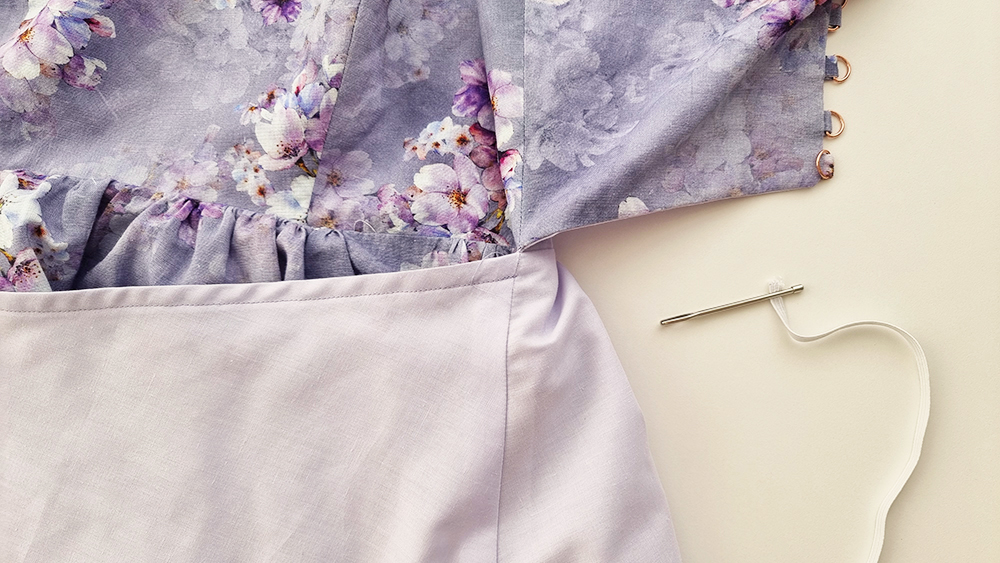
SLEEVES
Step 25
Run 2 rows of gathering thread across the top of the sleeve head between the front and back notches.
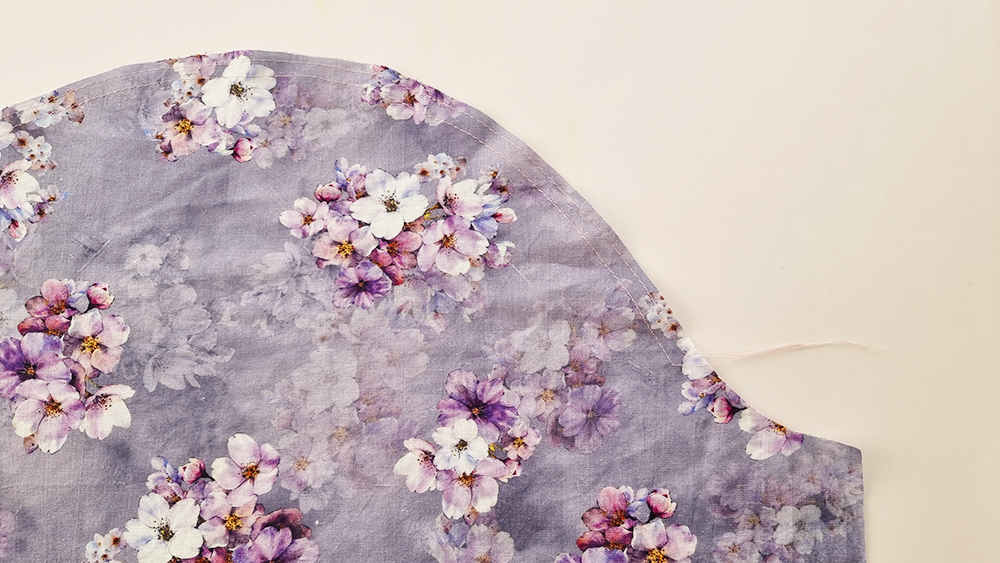
Step 26
Next, take each sleeve. Pin sleeve inseams right sides together stitch closed with a 1.5cm seam then and overlock closed, then press towards the back.
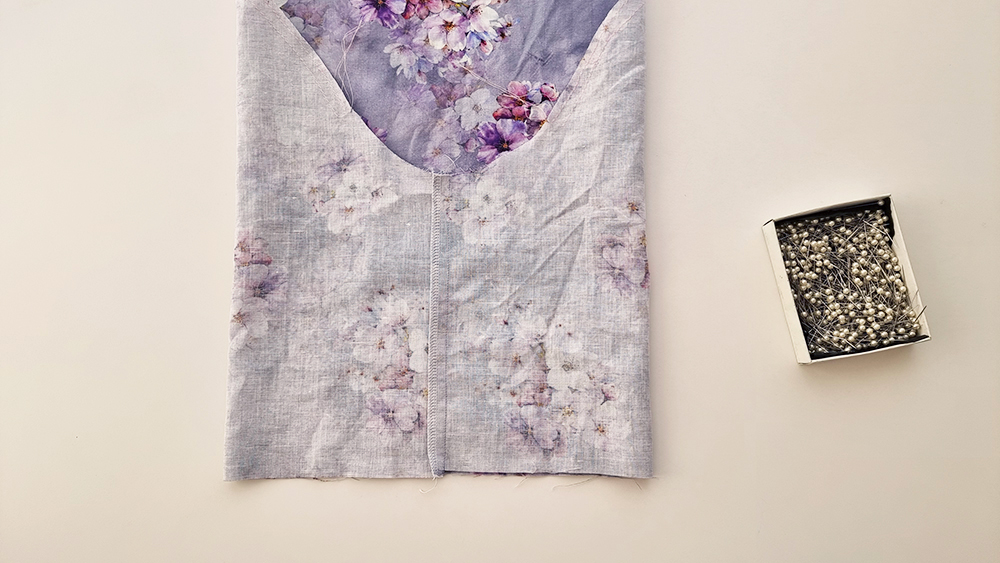
Step 27
Turn each sleeve inside out, then using your iron, fold a 1cm seam allowance at the sleeve hem then fold again to make a 3cm seam allowance.
Step 28
Hem the sleeve stitching 2.8cm from the sleeve hem. Leave a 3cm gap to thread the elastic through.
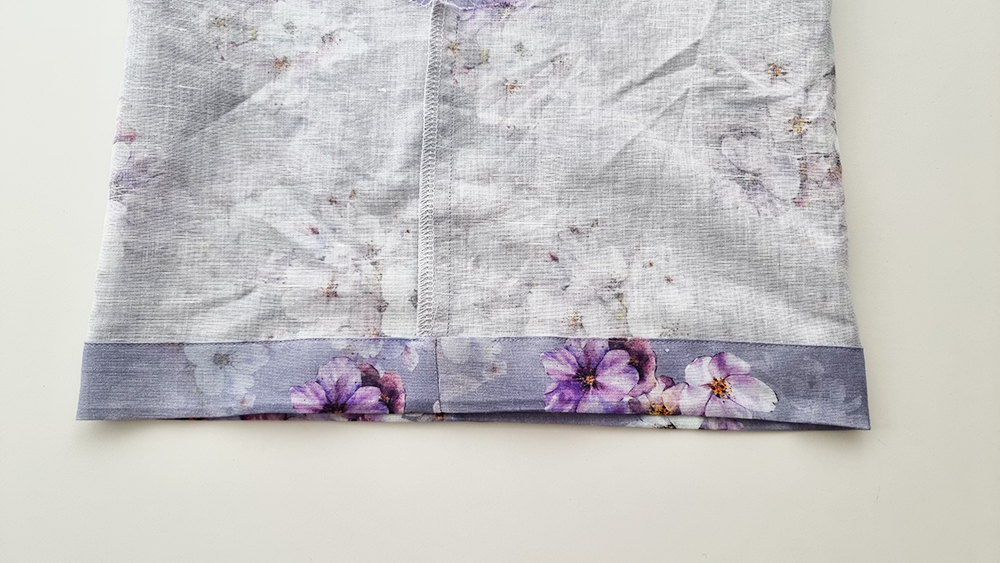
Step 29
Thread the elastic through using a safety pin or bodkin. Secure the ends of the elastic together using a box stitch then let the elastic shrink back into the hem.
Step 30
Close the 3cm gap following the stitching from the previous step.
INSERTING THE SLEEVES
Step 31
Pin the sleeve into the armhole right sides together. (this is easier if the garment is turned inside out and the sleeves are the right way out) Match the notches together at the shoulder seam, inseam and front and back notches, then use the gathering thread to gather the sleeve to fit the armhole.
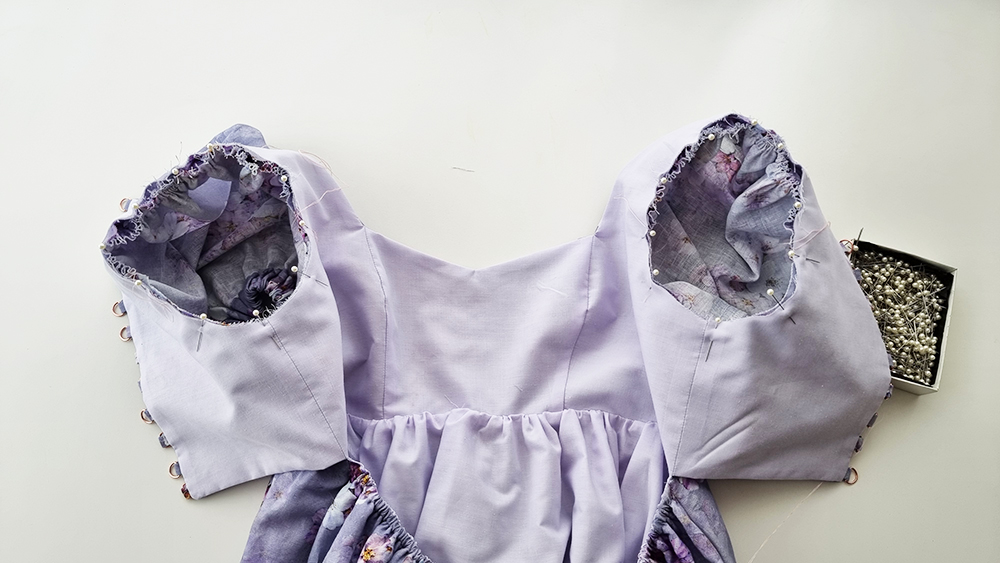
Step 32
Check that gathers are even, then stitch closed, overlock, and press the seam outwards (if your fabric is slightly thicker, the seam allowance may need to be pressed inwards.
Step 33
Lastly, lace up the center back detail using ribbon or self-fabric rouleau.
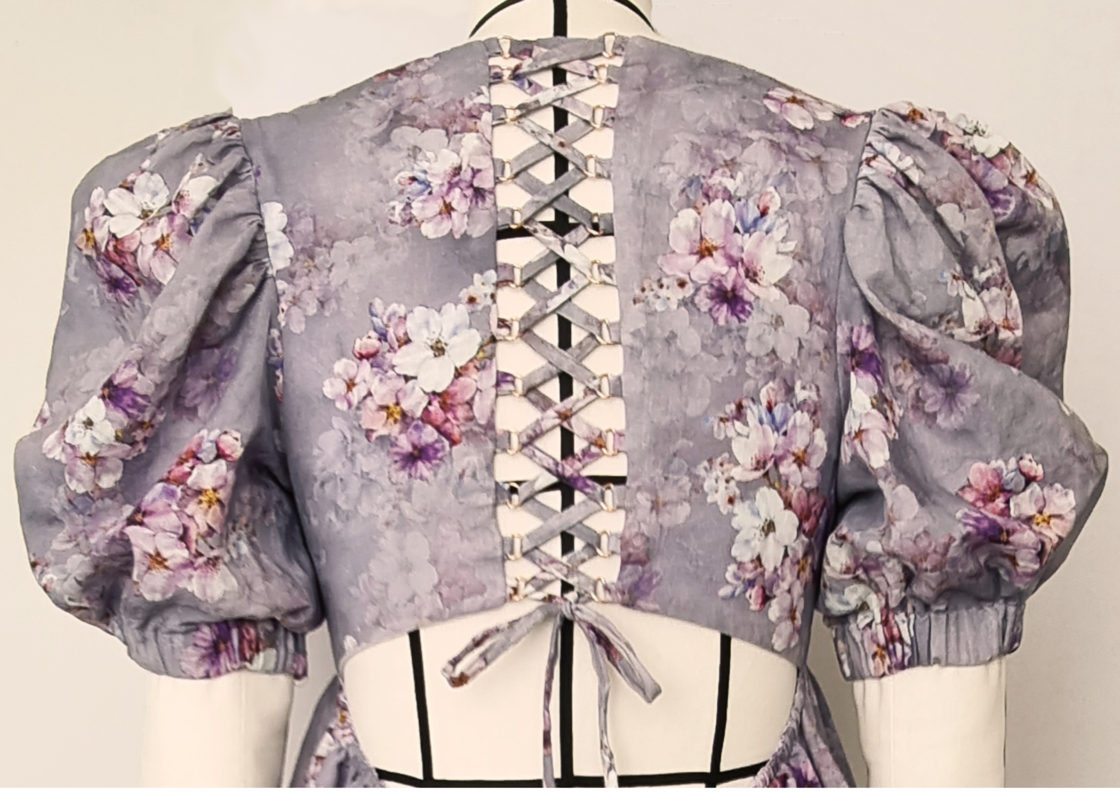
The Marley Babydoll Dress is now complete. Please feel free to contact me if you need any extra help.
Want to make this style in plus size? The same instructions can be used and the pattern can be found here.
I’d love to see your creations, either drop an image in the comments below or tag me on Instagram at @at_the_seams_patterns
x
